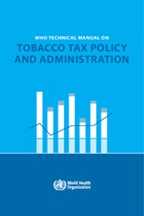Tobacco control economics
Tobacco use causes enormous health and economic damage wreaking havoc on families, communities and societies across the world. The annual economic cost of smoking was estimated at US$ 1.4 trillion in 2012, equivalent to 1.8% of the global gross domestic product (GDP). Together with the market failures and negative externalities associated with addiction and tobacco use, this massive burden provides strong justification for governments to intervene in the tobacco market.
The level of destruction caused by tobacco in the 20th century has also led countries to negotiate the World Health Organization Framework Convention on Tobacco Control (WHO FCTC). The FCTC came into force in 2005 as the first public health treaty under the auspices of WHO. It includes six demand reduction strategies for curbing tobacco use that were subsequently packaged as MPOWER by WHO for country-level implementation. This includes Article 6 of the FCTC which recognizes that price and tax measures are an effective and important means of reducing tobacco consumption for various segments of the population and, in particular, among price sensitive young persons.
The economics of tobacco control extends beyond the negative impact of tobacco use or conversely the benefits from demand reduction strategies like taxation into other issues like employment or illicit trade that the tobacco industry often mischaracterize and use as scare tactics to stall governments from implementing tobacco control policies. Invariably, evidence throughout the world confirms that tobacco control can make a strong contribution to public health, fiscal space, the economy and sustainable development.
Publications
All →
